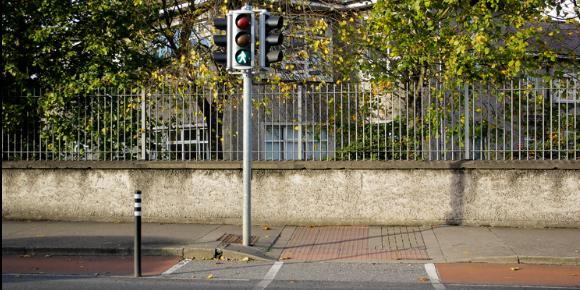
Who Is Liable if You Trip and Fall on a Sidewalk Outside a Residence?
- posted: Sep. 27, 2023
- Personal Injury
Each year, thousands of people are injured on public sidewalks, usually by slipping or tripping and falling. A key question that arises is who is liable for the victim’s damages. In New Jersey, the answer often depends on whether the sidewalk is next to a commercial or residential property.
It is settled New Jersey law that commercial property owners have a duty of care to pedestrians to keep adjacent sidewalks in good repair and clear of obstructions. In contrast, the law does not impose such a duty of care on residential property owners. A residential owner can be held liable only for taking some action that causes or exacerbates a dangerous condition on the sidewalk. Otherwise, the residential owner is immune from suit
Many local governments have ordinances that require residential property owners to maintain adjacent sidewalks. The government can compel compliance through a variety of means, including monetary penalties and fines. However, such ordinances do not create a duty of care to third parties. A violation of an ordinance is not enough for an injured pedestrian to prevail in a lawsuit against the adjacent property owner. The pedestrian would have to show that an act by the owner directly caused the accident.
This state of affairs may change. The New Jersey Supreme Court has agreed to hear an appeal in which the plaintiffs seek to curtail residential owners’ immunity from sidewalk injury liability. In the case, Cuello v. Ramos, the plaintiff tripped on a slab of sidewalk that had been raised up by tree roots underneath. The defendants had notified the township of the sidewalk condition prior to the accident and thus had knowledge. The trial court dismissed the plaintiff’s lawsuit, despite a township ordinance that requires all property owners to make prompt repairs “in the event that the whole or any part of the sidewalks and driveway entrances becomes dangerous or hazardous to pedestrian travel.”
The Appellate Division affirmed the dismissal, finding that simply knowing of a dangerous condition and permitting it to continue does not create liability. The plaintiff would have to have shown that the defendants had performed negligent construction or repair or had otherwise taken action to create an unsafe situation. Here, the condition was the result of natural forces.
The plaintiff’s lawyers are clearly asking for the state Supreme Court to change existing law. As experienced premises liability lawyers, we hope the court will discontinue the artificial distinction that now exists between residential and commercial property owners. It is notable that in this case, the residential property is an apartment building owned by the defendants, who collect rent from tenants.
Seigel Law in Ridgewood has for decades worked to obtain compensation for slip-and-fall accident victims across northern New Jersey. Please call 201-444-4000 or contact us online for a free initial consultation.

